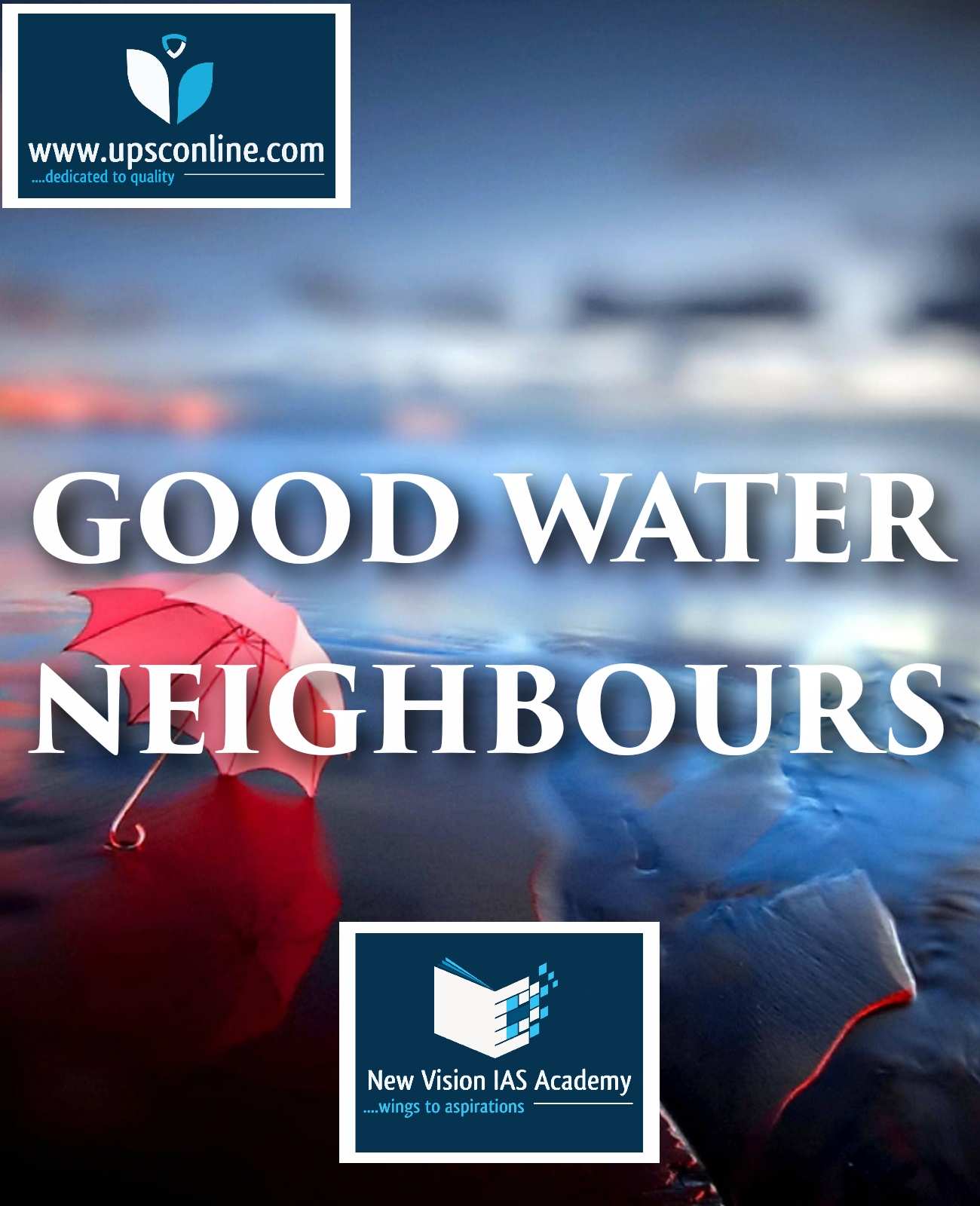The Middle East and North African (MENA) region is one of the most water-stressed regions in the world . Situated in the heart of the MENA, Israel and Palestine face issues of prolonged drought, pollution, and unequal distribution of water resources. Within this ecological context, the Israeli-Palestinian conflict adds an additional layer of complexity.
Israel and Palestine’s freshwater sources consist of coastal rivers, lakes, aquifers, and the Jordan River, which originates on Mount Hermon, flows along Israel and the West Bank’s border with Jordan, until it is ultimately deposited in the Dead Sea.
The Jordan River’s water is shared by four riparians : Israel, Lebanon, Jordan, and Syria. Although the Jordan River runs along the West Bank, the Palestinians are currently denied access to its water resources. The Mountain Aquifer is the largest groundwater reservoir in the region. The Mountain Aquifer’s recharge area lies in the West Bank, making the Palestinians upstream, and the Israelis downstream riparians. Because it is an important source of freshwater for both Israel and the Palestinians, regulations for its use were set forth in the 1995 Oslo Accords.
In the early days of the Zionist movement, water was recognized as critical for the development of a Jewish state.The perception of water as a prerequisite for national security has shaped Israel’s relations with its neighbors, with whom it shares many of its water resources.
The battle of 1967 influenced Israel’s strategy, the war’s outcome completely overturned the hydro-political structure of the region. Having occupied the Golan Heights, the Gaza Strip, the West Bank, and East Jerusalem, Israel was able to secure additional sources of water supply and effectively gained control over 80 percent of the West Bank’s water.
In the context of Israel and Palestine, destroying sanitation facilities or water delivery systems such as water pipelines and rooftop water tanks has become part of the overall conflict. During the 2014 Gaza War, Israel destroyed Gaza’s only electricity plant, and damaged a wastewater treatment plant and a desalination facility, leaving over 1.2 million Palestinians with limited fresh water or sanitation facilities and $34 million in damages to Gaza’s water infrastructure.
The situation looks drastically different on the Palestinian side, where chronic water stress, exacerbated by periodic droughts and malfunctioning water infrastructure, are still taking their toll on the Palestinian people and economy.
Many of Israel’s settlements in the West Bank have been connected to the regional water and sanitation infrastructure. In contrast, many Palestinian villages that are located within the Israeli-controlled areas of the West Bank receive too little water.
Israel’s state-owned water company Mekorot, sells water to the Palestinians at prices that are up to three times more than the highest tariff for its Israeli customers.
Both Israel and the Palestinians have accused each other of violating the regulations set forth in the water sharing agreement as part of the Oslo II negotiations in 1995.
Issues of pollution and salinization have reached critical levels in the Palestinian territories, particularly the Gaza Strip, where less than 5 percent of water resources are fit for consumption.
After the launch of the Middle East Multilateral Working Group on Water Resources as part of the Madrid Conference of October 1991, the question of water became one of the central points in the Oslo negotiations between Israel and the Palestinian Liberation Organization (PLO). The 1995 Israeli-Palestinian Interim Agreement acknowledged (but did not define) Palestinian water rights in the West Bank, regulated needs-based water extraction rates from shared water basins (excluding the Jordan River), and established the Joint Water Committee (JWC) .
Instead, the JWC has been widely criticized for what Jan Selby calls Israel’s domination and colonization of Palestinians.
In 2010, protesting what they called continued colonization by Israel, the Palestinians withdrew from the JWC. In early 2017, after almost seven years of standstill, Israeli Major General Yoav Mordechai and Palestinian Authority Civil Affairs Minister Hussein al-Sheikh agreed on a revised mechanism that empowers the Palestinians to implement necessary maintenance projects in the West Bank without prior approval from the JWC.
The Oslo negotiations prompted a wave of optimism for peace in the region and spawned a number of NGOs working on related issues. Born in December 1994, in the wake of the Oslo negotiations, EcoPeace Middle East (previously Friends of the Earth Middle East) has become one of the best-known environmental civil society groups in the region. EcoPeace operates as a tri-lateral nongovernmental organization (NGO) uniting Israelis, Palestinians, and Jordanians in a joint environmental peacebuilding mission.
The organization has a twofold mission. First, EcoPeace works to advance environmental cooperation fostering sustainable regional development. Second, it seeks to promote the conditions for lasting peace among the people of its region on the basis of a two-state solution.
EcoPeace’s activities are based on the premise that shared natural resources necessitate cross-border cooperation, and that such cooperation can become a platform for intergroup dialogue and trust building, which EcoPeace describes as environmental peacebuilding.
The concept of environmental peacemaking draws upon the three pillars of sustainable development: economic sustainability, socio-cultural sustainability and ecological sustainability.
Cross-border environmental cooperation integrates the processes of economic and socio-cultural development and societies benefit mutually from the common management of shared resources. Furthermore, cooperation between societies offers a platform for ongoing intercultural dialogue.
As a tri-lateral NGO, EcoPeace operates from three offices located in Tel Aviv, Israel; Ramallah, Palestine; and Amman, Jordan. The NGO utilizes an integrated strategy of both advocacy (“top-down”) and grassroots/community work (“bottom-up”). In doing so, the organization hires researchers and environmentalists from all three communities to analyze the region’s underlying environmental issues and their root causes.
This vision is then communicated to policymakers, the media, and the general Israeli, Palestinian, and Jordanian publics.
EcoPeace’s advocacy programs include the Water Cannot Wait campaign, which promotes a new Israeli-Palestinian agreement on water allocation and management ; the Jordan Valley Master Plan, which seeks to implement changes of practices related to mineral extraction, pollution, and water diversion of the Jordan River and the Dead Sea ; and the Water-Energy Nexus, which foresees the creation of an interdependent Israeli-Palestinian-Jordanian Water Energy Community.
Initiated in 2001, the Good Water Neighbors (GWN) program engages Israeli, Palestinian, and Jordanian communities of shared water basins in cross-border environmental activities. Currently, EcoPeace works with 28 participating communities, of which half share the Jordan River/Dead Sea Basin, and the other half share the Mountain and Coastal Aquifer as well as Coastal streams watershed.
The GWN includes multiple projects like Faith-Based Initiatives that draw on the Jordan River’s religious and cultural significance to the three Abrahamic faiths to empower clergy and members to promote the rehabilitation of the Jordan River; Green Economy Initiative, which incentivizes regional businesses to advance sustainable development through economic activities; EcoCenters, where tourists and youth learn about the region’s shared environment; and educational activities, through which the organization works with schools and communities to educate students and teachers about sustainable environmental practices and approaches to regional environmental management.
Approximately 94 percent of the Jordan River Valley and the Dead Sea area have been designated as closed military zones, nature reserves, or Israeli settlements. As a result, the Palestinians cannot make use of either the Jordan River’s water resources, or the Dead Sea’s minerals.
Moreover, with the construction of the Separation Barrier, dozens of groundwater wells, springs, and 9,884 acres of farmland have been isolated in the Seam Zone (the area between the Green Line and the Separation Barrier) and have become inaccessible to the Palestinians in the West Bank.
Between Israel and Palestine there are fifteen cross-border streams, twelve of which flow westward into the Mediterranean Sea, while the other three go east towards the Dead Sea or the Jordan River.
The joint Israeli-Bedouin environmental activism for the rehabilitation of the Hebron-Bezor-Gaza basin exemplifies how pursuing cooperation for self interests can ultimately maximize mutual benefits for an entire region.
Over time, and with the additional support of organizations such as EcoPeace, however, the campaign has expanded to include Jewish Israelis, Bedouin, Israeli Palestinians, and Palestinians.
Under Article 40 in Annex III of the 1995 Oslo Accord, Israel recognized “Palestinian water rights”, stipulating that the exact nature of those rights would be defined in the final agreement following the end of the five-year Interim period.
Because of Palestine’s weak economy, the construction of treatment plants, landfills, and other water infrastructure in the West Bank and Gaza Strip is coordinated and financed by a variety of third-party donor agencies, including the German Federal Ministry for Economic Cooperation and Development (BMZ), the German banking group KfW, the EU, USAID, and the World Bank.
EcoPeace’s vision of the Jordan River Peace Park truly is a model project of holistic cross border cooperation targeting the rehabilitation of the Jordan River, spur local businesses, local economy and tourism industry, and function as an opportunity for concerted environmental management between Israeli and Jordanian park authorities.
Through its bottom-up/grassroots approach, EcoPeace regularly works with local schools and community groups to offer extra-curricular courses about environmental sustainability and cross border cooperation, and collective responsibility to care for their shared natural resources.
EcoPeace coordinates a number of projects with youth and adults under the umbrella of the GWN. Through its educational activities in schools and community groups, the organization has recruited several hundreds of young volunteers, so-called Youth Water Trustees.
GWN works both on the community and municipal levels. In each community, local field staff work in close partnership with groups of EcoPeace “Youth Water Trustees” and adult activists to create awareness of their own water reality, their neighboring community’s water reality, and the interdependence between the two, which necessitates shared solutions to shared problems.
The experience gained through this dimension of the GWN programme shows that identifying community “environment champions” is instrumental in garnering the support of municipalities and mayors, generating change on the municipalities’ policy level.
EcoPeace has thus been able to develop close relations with mayors who have themselves become advocates for transboundary cooperation on water, recognizing that working together with their neighboring municipalities across the border would serve the best interest of their constituencies.



0 Comments